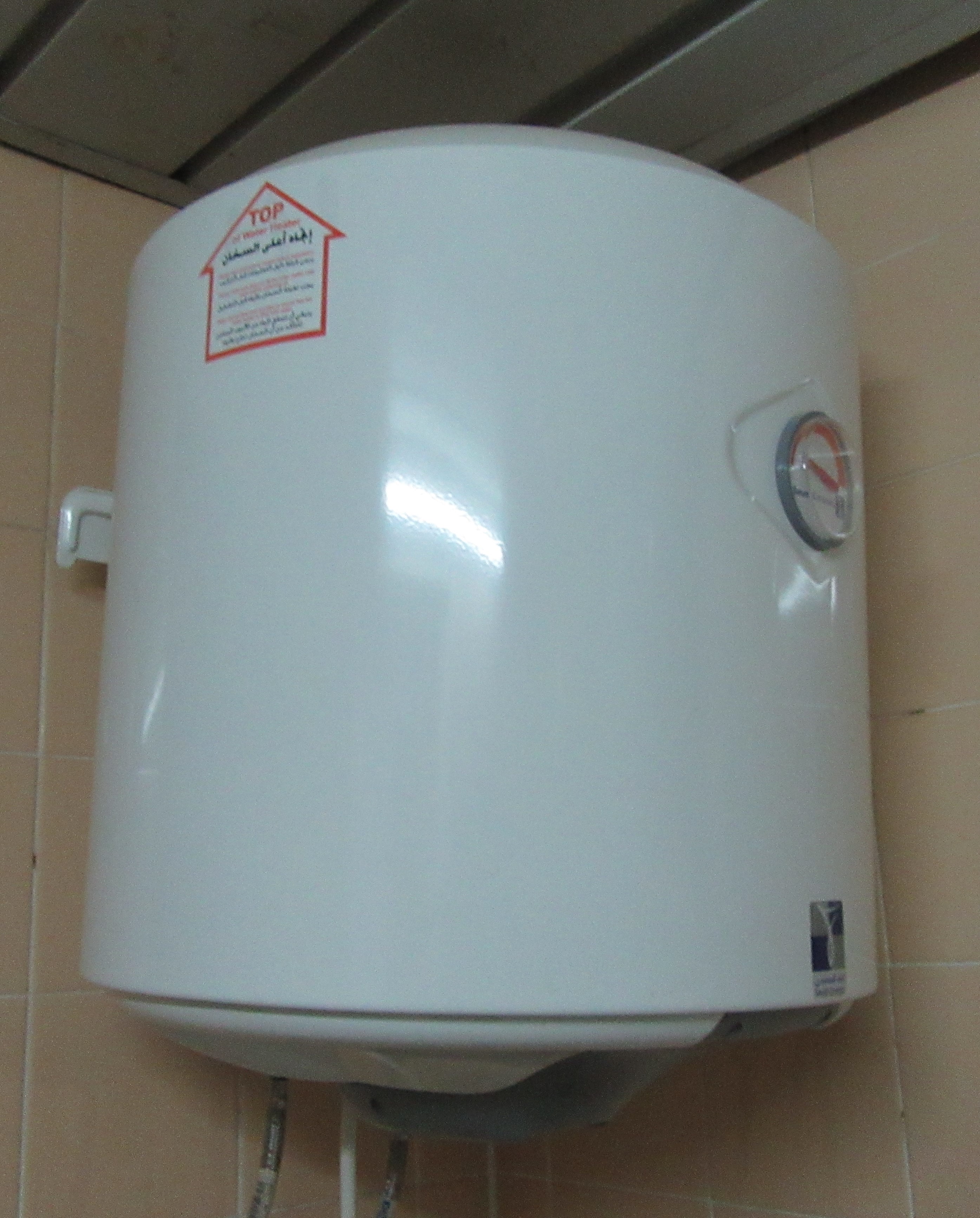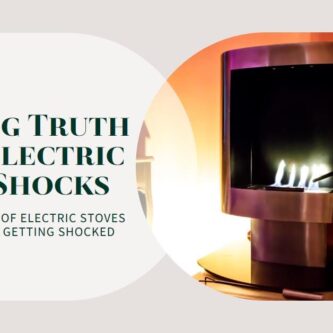Hot water heaters are essential appliances that provide hot water for daily activities like showering, washing dishes, and doing laundry.
However, they can also pose electrical hazards if not installed and maintained properly. One question that homeowners often ask is whether a hot water heater needs to be on a Ground Fault Circuit Interrupter (GFCI) breaker for safety.
Yes, it is recommended to use a GFCI breaker for an electric water heater. GFCI protection can help prevent electrical shocks and ensure the safe operation of the water heater, particularly in areas that are damp or wet.
In this article, we will explore this topic and provide answers to this common question.
What is a GFCI Breaker?
A GFCI breaker is a type of circuit breaker that is designed to protect people from electrical shock by quickly disconnecting power in the event of a ground fault.
A ground fault occurs when electricity flows through a person’s body to the ground, which can happen if a person comes into contact with an energized electrical component.
GFCI breakers are commonly used in areas where water is present, such as bathrooms, kitchens, and outdoor areas.
Is GFCI Protection Required for Hot Water Heaters?
The National Electric Code (NEC) requires GFCI protection for outlets within six feet of a sink in bathrooms, kitchens, and other areas where water is present, but it does not specifically require GFCI protection for hot water heaters.
However, many local building codes and electrical inspectors may require GFCI protection for hot water heaters as a safety measure.
Why Might a Hot Water Heater Need GFCI Protection?
While the NEC does not specifically require GFCI protection for hot water heaters, there are some situations where it may be necessary.
For example, if a hot water heater is installed in a wet or damp location, it may be at a higher risk of causing electrical shock if not properly grounded.
In addition, if the wiring or electrical components of the hot water heater are damaged or faulty, this can also increase the risk of electrical shock.
Read also my article Why Your Electric Heater Needs GFCI Protection
How Can You Tell if Your Hot Water Heater Has GFCI Protection?
If you are unsure whether your hot water heater has GFCI protection, there are a few ways to check.
The first is to look for a GFCI outlet near the hot water heater. If the outlet has a “Test” and “Reset” buttons, it is likely a GFCI outlet, which means that the hot water heater is also protected by the GFCI breaker.
Another way to check is to look at your circuit breaker panel. If there is a GFCI breaker that is labeled as “Hot Water Heater” or something similar, then the hot water heater is likely protected by the GFCI breaker.
the Benefits of Installing a GFCI Breaker for Your Hot Water Heater
Installing a GFCI breaker for your hot water heater can provide several benefits, including:
- Improved safety: GFCI protection can help prevent electrical shock and reduce the risk of electrocution.
- Compliance with local codes: If your local building codes or electrical inspector requires GFCI protection for hot water heaters, installing a GFCI breaker can help you meet these requirements.
- Peace of mind: Knowing that your hot water heater is protected by a GFCI breaker can give you peace of mind and help you feel more secure in your home.
Safety Measures You Can Take for Your Hot Water Heater

In addition to installing a GFCI breaker, there are several other safety measures you can take to protect yourself and your family from electrical hazards associated with hot water heaters. These include:
- Regular maintenance: Regularly maintaining your hot water heater can help prevent issues that could lead to electrical shock or other safety hazards. This includes flushing the tank annually to remove the sediment buildup, checking for leaks, and ensuring that the wiring and electrical components are in good condition.
- Proper installation: It is essential to have your hot water heater installed by a licensed electrician or plumber to ensure that it is properly grounded and wired according to local building codes and safety standards.
- Avoid contact with the hot water heater: You should never touch a hot water heater while it is in operation, as the heating elements can reach temperatures that can cause severe burns. Additionally, keep flammable materials away from the hot water heater, and never store anything on top of it.
- Installing a temperature and pressure relief valve: A temperature and pressure relief valve (TPR valve) can help prevent the hot water heater from overheating and potentially causing an explosion. The TPR valve releases pressure if the temperature or pressure inside the tank exceeds safe levels.
Read also my article Electric Water Heaters: A Shocking Hazard? Tips for Staying Safe
Standards and recommendations
here are some standards and recommendations related to hot water heater electrical safety:
- The National Electrical Code (NEC) is a widely recognized standard that provides guidelines for electrical safety in the United States. While the NEC does not specifically require GFCI protection for hot water heaters, it does recommend GFCI protection for all outlets located in potentially damp or wet areas, including basements, garages, and utility rooms.
- The Occupational Safety and Health Administration (OSHA) provides guidelines for electrical safety in the workplace, including recommendations for the safe operation of hot water heaters. OSHA recommends regular maintenance and inspections of hot water heaters, including checking for leaks, ensuring proper ventilation, and verifying that electrical components are in good condition.
- The Consumer Product Safety Commission (CPSC) is a government agency that provides safety guidelines and recommendations for consumer products, including hot water heaters. The CPSC recommends that homeowners have their hot water heaters inspected and serviced annually by a licensed professional and that they install temperature and pressure relief valves to prevent potential hazards.
It is important to note that specific safety standards and recommendations may vary depending on your location and local building codes.
It is always best to consult with a licensed electrician or plumber to ensure that your hot water heater is installed and maintained in accordance with local safety standards.
Here are some links to relevant organizations and resources related to hot water heater electrical safety:
- National Electrical Code (NEC): https://www.nfpa.org/Codes-and-Standards/All-Codes-and-Standards/List-of-Codes-and-Standards/Detail?code=70
- Occupational Safety and Health Administration (OSHA): https://www.osha.gov/
- Consumer Product Safety Commission (CPSC): https://www.cpsc.gov/
It is always important to consult with a licensed professional to ensure that your hot water heater is properly installed and maintained to prevent electrical hazards.
Conclusion
In conclusion, while the NEC does not specifically require GFCI protection for hot water heaters, it is always better to err on the side of caution when it comes to electrical safety.
If you are unsure whether your hot water heater has GFCI protection, check for a GFCI outlet near the hot water heater or look at your circuit breaker panel for a GFCI breaker labeled for the hot water heater.
Installing a GFCI breaker for your hot water heater can provide additional safety benefits and ensure compliance with local building codes and safety standards.
However, it is essential to also take other safety measures, such as regular maintenance, proper installation, and avoiding contact with the hot water heater, to prevent electrical hazards.
By following these safety guidelines, you can enjoy the comfort and convenience of your hot water heater while also ensuring the safety of yourself and your loved ones.
you work With Electricity! Don’t leave empty-handed!
Looking to stay ahead of the game in the world of electrical engineering? Subscribe to my YouTube channel and gain access to exclusive content you won’t find anywhere else!
The staff I recommend (Amazon Affiliate Links to products I believe are high quality):
- Economy 120 Volt/60Hz AC Power Source – Step-Down Voltage & Frequency Converters 1800W
- UNI-T Digital Multimeter Tester UT139C
- 50-Amp Extension Cord for RV “100ft”
- Voltage Stabilizer 110/220v
- Hair Dryer “best selling“
- TOSHIBA EM131A5C-BS Countertop Microwave Ovens
Disclaimer: This contains affiliate links to Amazon products. I may earn a commission for purchases made through these links.

